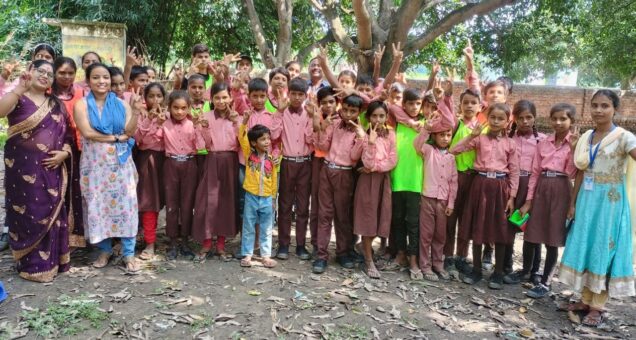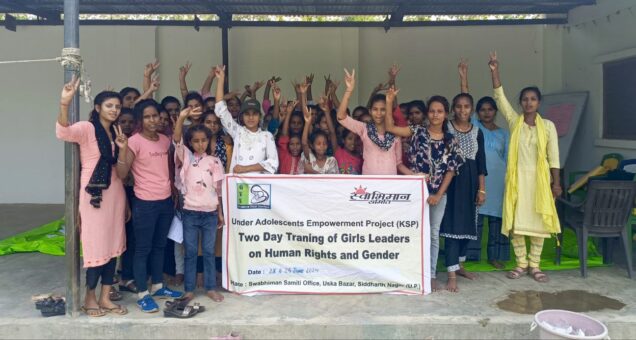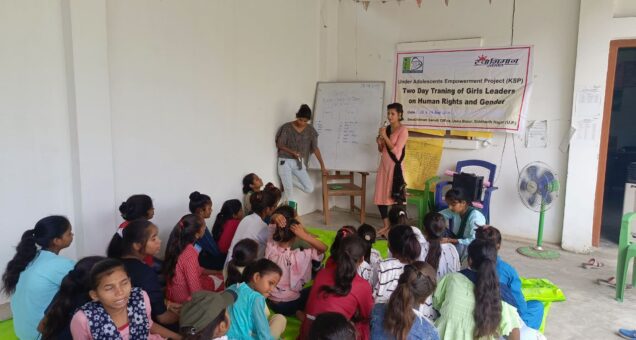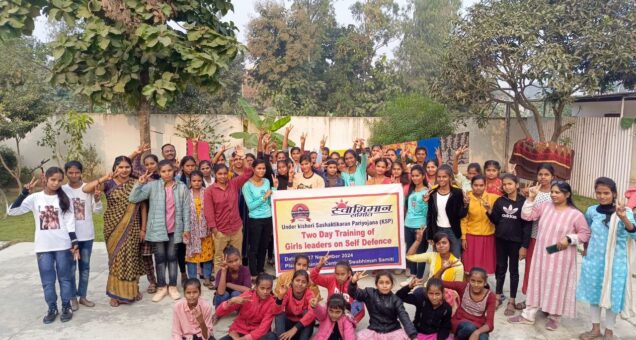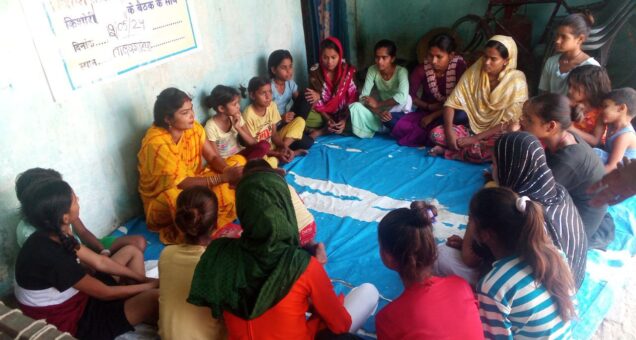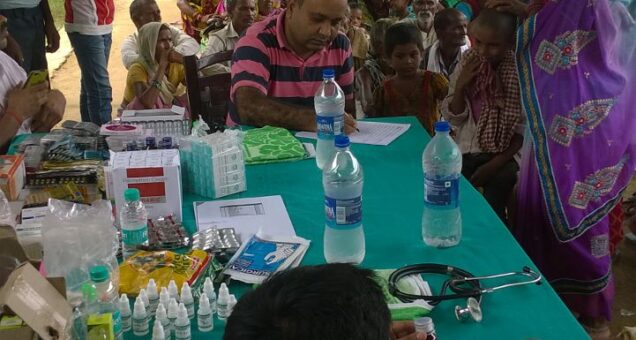Vinod Kumar
CF / Secretary
Swabhiman Samiti is a grassroots social organisation founded in 2004, rooted in the belief that dignity (Swabhiman), self-respect, and justice are fundamental human rights. The organisation works to empower marginalized and excluded communities and to contribute towards building a society free from poverty, patriarchy, and social injustice.
Guided by Gandhian values—Ahinsa (Non-Violence), Gram Swaraj (Local Self-Governance), and Rojgaar (Sustainable Livelihoods)—Swabhiman Samiti believes that lasting change can only be achieved when communities are not treated as beneficiaries, but as active agents of their own transformation. Our approach places people at the centre of development, fostering leadership, collective action, and accountability from the ground up.
Serving 35,000+ people in 3 Districts across Uttar Pradesh, driving community-led change.
Empowering marginalized communities for a future free from poverty and injustice.
Volunteers
Years of Experience
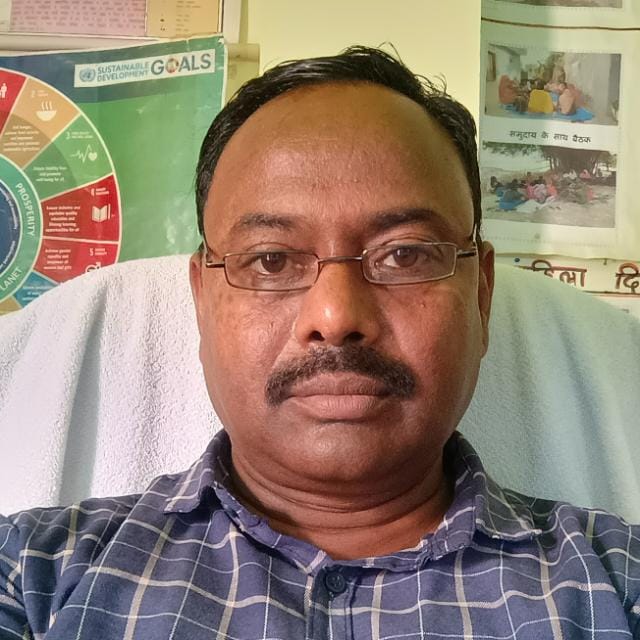
CF / Secretary





2004-2009
2009-2014
2014-2019
2019-2024
2024-Present
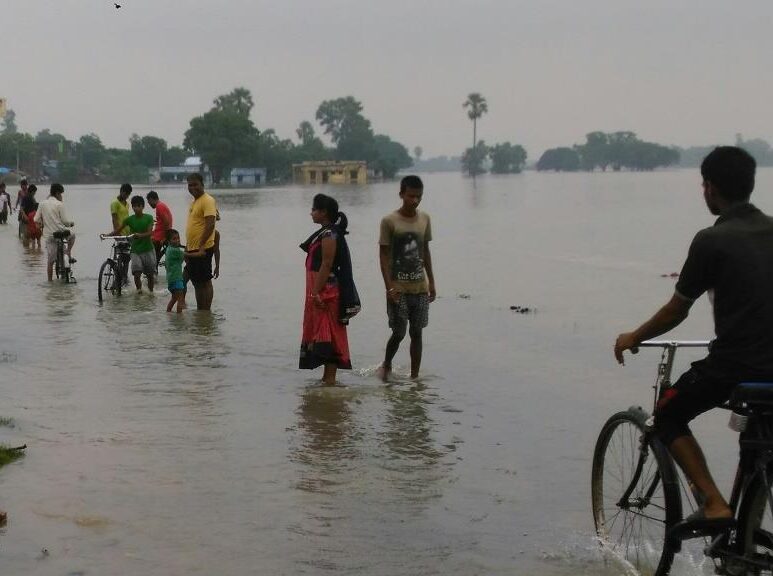
In the aftermath of devastating floods, we stepped in to provide immediate relief to 1200 families, ensuring they not only survived but thrived. Our Disaster Management Program trained 40 volunteers, equipping them with the skills to respond to future crises. These early steps laid the groundwork for what would become a movement of resilience and empowerment.
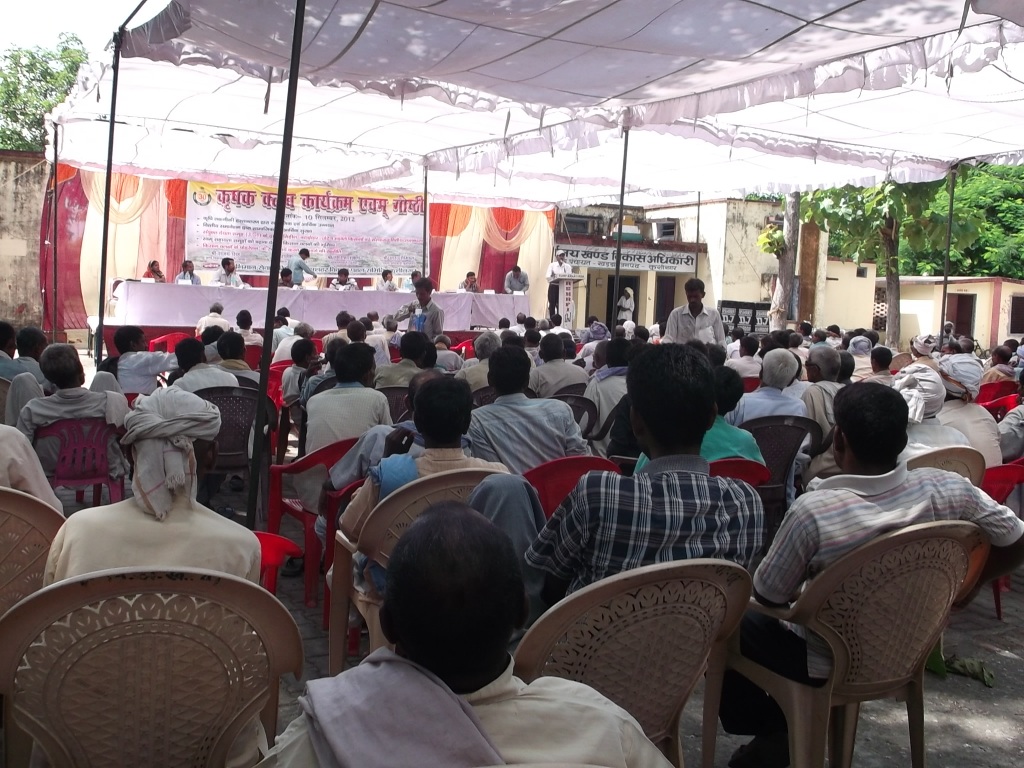
we empowered farmers through the Krishak Club Program, providing them access to modern agricultural techniques and financial resources, ensuring that rural livelihoods were not just sustained but thriving. As the world shifts, so do we. Our Rojgar Evam Swasthya Adhikar Pariyojana project continues to fight for non-discriminatory access to livelihoods and healthcare.
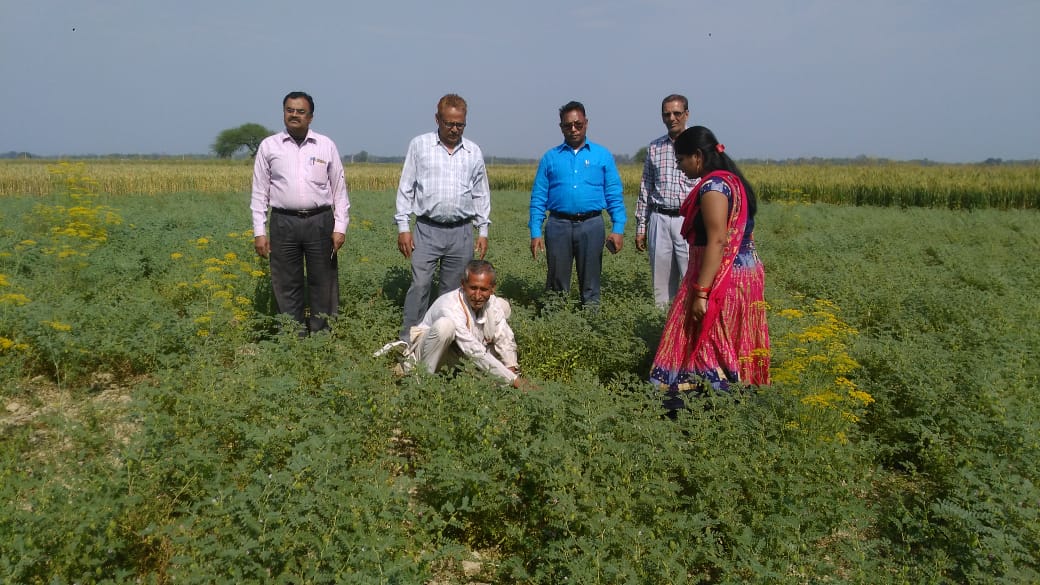
We launched the Farmer’s Action for Sustainable Agro-Based Livelihood program, ensuring 1500 families adopted sustainable farming practices that boosted income and improved environmental stewardship. Our advocacy for marginalized communities ensured that entitlements under government schemes were claimed, creating a pathway to self-sufficiency. We reach to 300 youth through the Know Your Body, Know Your Rights project, providing them with critical knowledge on sexual abuse, consent, and HIV—preparing them to make informed decisions about their lives.
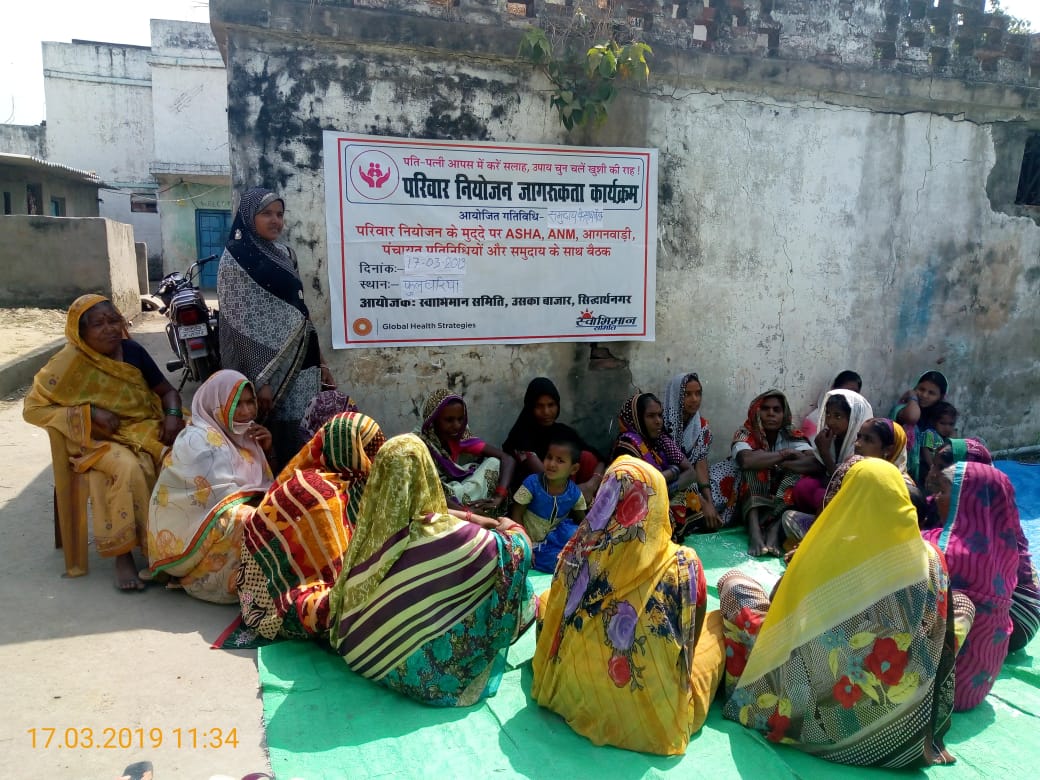
Understanding that true transformation comes from within, we focused on empowering communities through health education and youth engagement. During this period, we promoted reproductive health and family planning services across rural areas, ensuring better maternal care and informed decision-making. Simultaneously, in response to the pandemic, we mobilized efforts to achieve 100% COVID-19 vaccination coverage in our operational blocks—ensuring no one was left behind.
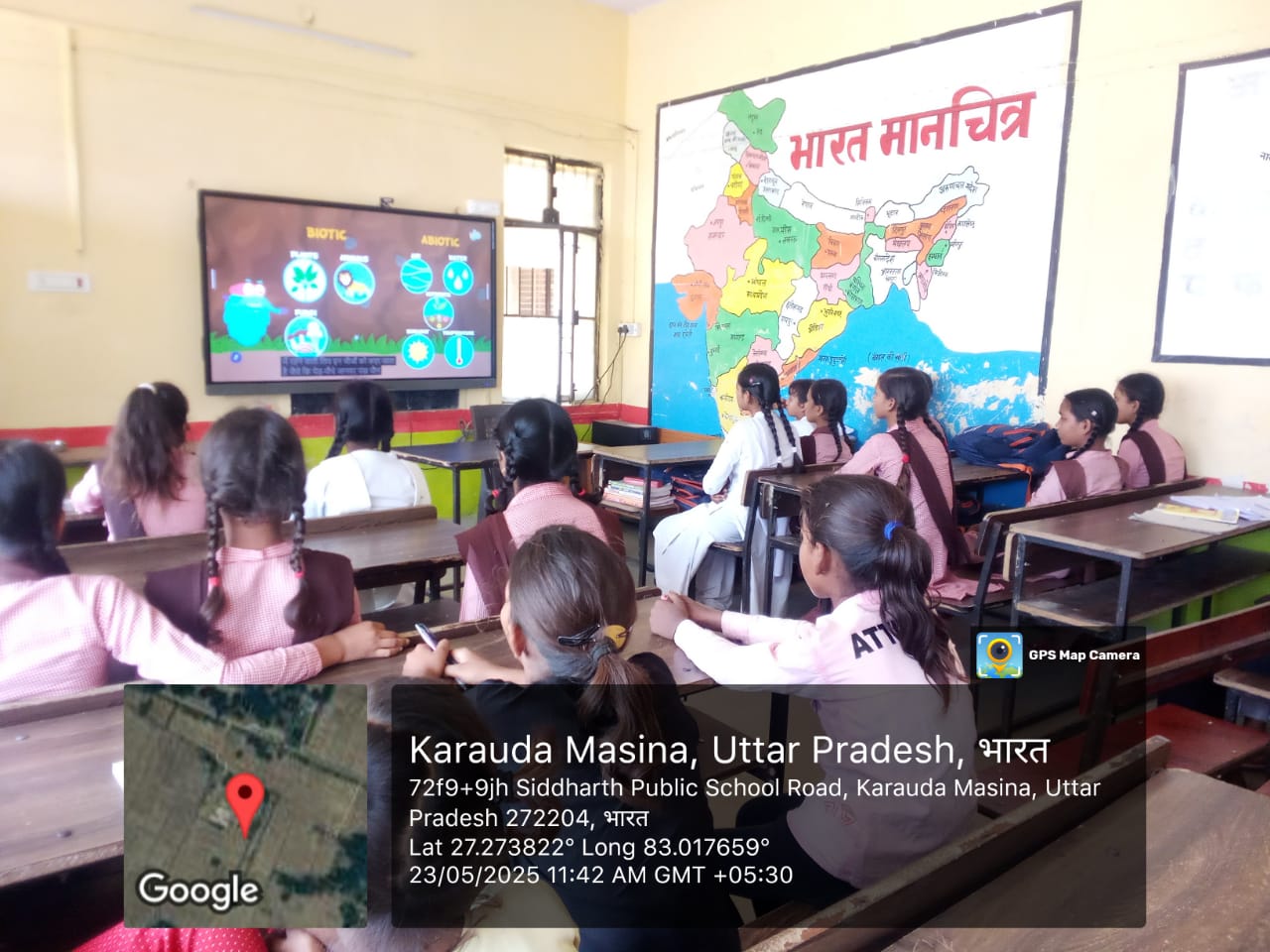
Since 2024, Swabhiman Samiti has intensified its mission to empower rural communities in Siddharthnagar district. Our work with physical education and social-emotional learning in schools has transformed student engagement, especially for girl children. Through dedicated programs such as Project Chhalaang, Digital Classroom Program, EmpowerEd: Digital Literacy Program, and Kishori Sashaktikaran Pariyojana (KSP)—which focuses on Sexual and Reproductive Health and Rights (SRHR)—Swabhiman Samiti has strengthened educational outcomes, promoted gender equality, and built healthier, more resilient communities.

We uphold every individual’s right to live with self-respect, voice, and equal opportunity, regardless of caste, gender, or economic status.
We work to reduce structural inequalities by ensuring fair access to rights, resources, and services for the most marginalized communities.
We challenge injustice and discrimination through rights-based advocacy, collective action, and strengthening accountability.
We believe sustainable change is possible only when communities actively lead, decide, and own the processes that shape their lives.
We promote gender equality and inclusion by transforming social norms, ensuring equal rights, and amplifying voices of women and adolescents.
Guided by Gandhian values, we pursue peaceful, ethical, and inclusive approaches to social change and conflict resolution.
We maintain openness, ethical conduct, and accountability in governance, finance, and programme implementation towards all stakeholders.
We design long-term, climate-resilient and community-owned solutions that strengthen livelihoods, ecosystems, and institutional capacities.

Our initiatives focus on building community resilience to climate challenges through disaster preparedness and sustainable environmental practices.
Our goal is to provide quality education, focusing on out-of-school children and promoting digital learning in rural areas.
Our efforts advocate for sexual and reproductive health rights, ensuring women and children have access to essential health services.
Our programs empower marginalized communities by creating sustainable income opportunities through skill-building and resource management.
Our work addresses the root causes of poverty by providing access to education, healthcare, and livelihood resources.
Our initiatives ensure access to clean drinking water and sanitation facilities to improve community health and hygiene.


Swabhiman Samiti’s Five-Year Strategic Framework (2026–2030) sets out a clear roadmap to strengthen community-led development while enhancing institutional sustainability and accountability. The framework builds on over two decades of grassroots experience and responds to evolving social, economic, and environmental challenges faced by marginalized communities.
The strategy prioritizes empowerment of women, adolescents, farmers, and vulnerable households through integrated interventions in education, gender justice, health, livelihoods, climate resilience, and participatory governance. It emphasizes strengthening local institutions, community leadership, and rights-based engagement to ensure long-term and inclusive impact.
At the organisational level, the framework focuses on robust governance systems, transparency, policy compliance, strategic partnerships, and a strong Monitoring, Evaluation & Learning (MEL) architecture aligned with Sustainable Development Goals (SDGs). Technology-enabled systems and data-driven decision-making will support effective programme planning and impact measurement.
Rooted in the core values of dignity (Swabhiman), self-reliance, and local self-governance, this framework reflects Swabhiman Samiti’s commitment to co-creating sustainable solutions with communities—ensuring development that is inclusive, resilient, and lasting.
Swabhiman Samiti is a grassroots social organisation founded in 2004, rooted in the belief that dignity (Swabhiman), self-respect, and justice are fundamental human rights. The organisation works to empower marginalized and excluded communities and to contribute towards building a society free from poverty, patriarchy, and social injustice.
Guided by Gandhian values—Ahinsa (Non-Violence), Gram Swaraj (Local Self-Governance), and Rojgaar (Sustainable Livelihoods)—Swabhiman Samiti believes that lasting change can only be achieved when communities are not treated as beneficiaries, but as active agents of their own transformation. Our approach places people at the centre of development, fostering leadership, collective action, and accountability from the ground up.
Serving 35,000+ people in 3 Districts across Uttar Pradesh, driving community-led change.
Empowering marginalized communities for a future free from poverty and injustice.
Volunteers
Years of Experience

CF / Secretary
